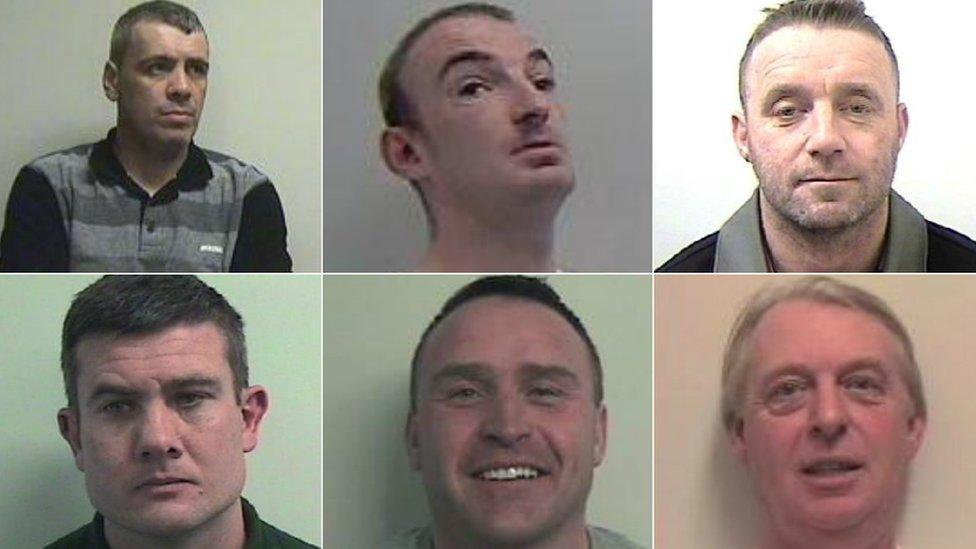Martin Kok: Gangland figure guilty of murdering Dutch crime writer
- Published
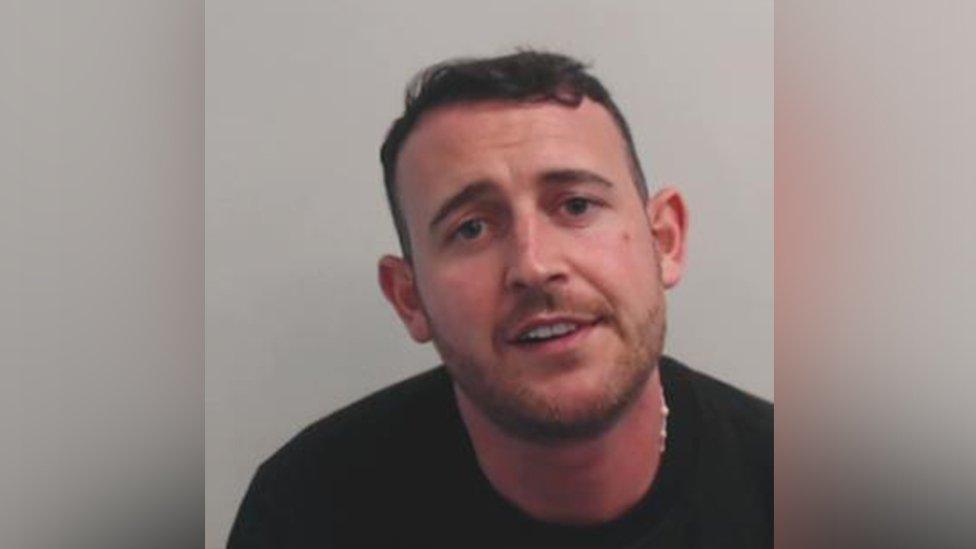
Christopher Hughes will be sentenced next month
A member of a major Scottish crime gang has been convicted of the murder of a Dutch crime writer outside a sex club.
Christopher Hughes lured Martin Kok, 49, to his death before he was shot eight times by a gunman in Laren, in the Netherlands, on 8 December 2016.
Hughes, 33, was a senior member of a crime clan which had global connections ranging from Colombian drug cartels to the Italian mafia.
He will be sentenced at the High Court in Glasgow next month.
After the verdict Police Scotland described Hughes as a "dangerous individual".
As well as the murder he was also convicted of involvement in serious organised crime between July 2013 and January 2020.
Kok was a convicted murderer-turned-crime writer who had set up a website exposing criminals in his homeland.
During the trial it emerged Hughes met him at an Amsterdam hotel, then the Boccaccio sex club and alerted others to where he was.
As the pair later left, Hughes stopped to pat a cat outside before Kok was gunned down as a "favour" for seemingly crossing Moroccan-based gangsters.
Hughes was quizzed by Dutch police the next day before being allowed to leave.
He remained at large in Europe as the international probe into the shooting continued.
But it was his apparent confession to a fellow gang member-turned-informer which lead to his downfall.
Hughes was arrested at a hotel in Turin, Italy in January 2020 and flown back to Scotland on a European Arrest Warrant.
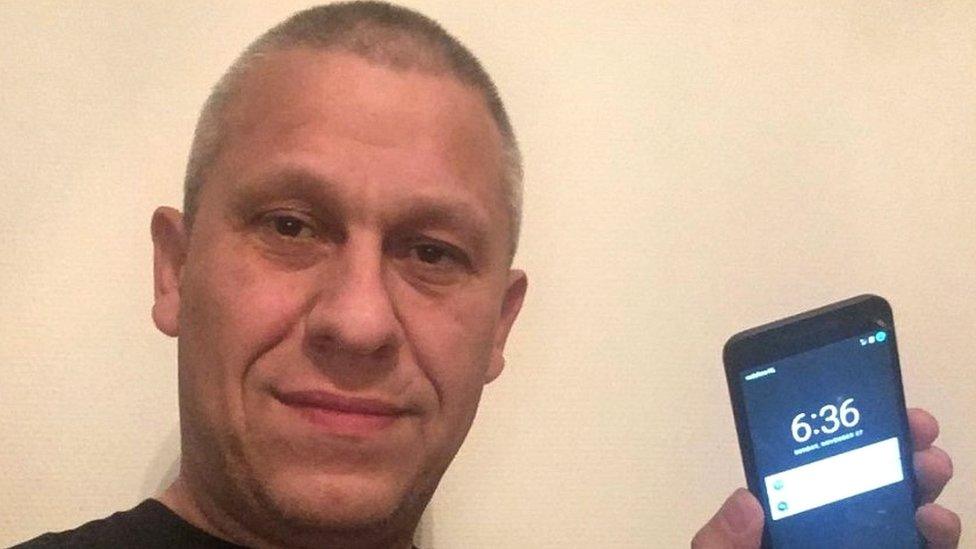
Martin Kok died outside a club near Amsterdam in 2016
Despite the fact the murder happened in the Netherlands, it was investigated as part of Police Scotland's Operation Escalade.
To date it has resulted in gang members being jailed for a combined total of more than 100 years.
The heavily-armed group were involved in a global criminal enterprise that generated more than £100m a year.
They even invested in state-of-the-art surveillance equipment in a bid to establish if their network had been compromised by the authorities.
The court heard Hughes was a trusted member and jurors were shown a photo of him smiling with the two wanted men who run the operation.
They cannot be identified for legal reasons.
Hughes was listed by HMRC as "unemployed" but "wages" of £40,000-a-week earned him a luxury lifestyle in the Algarve.
The informer explained to jurors in evidence that he was told to set a meeting up in an Amsterdam hotel between Hughes and Kok.
He told the court he believed the meeting was to discuss advertising for the firm's encrypted phone company MPC, which was funded with £1m of dirty money, on Kok's new crime TV show.
The murder was originally due to happen outside the Citizen M Hotel in Amsterdam.
But Hughes, originally from Glasgow, later told the informant that the gun had jammed during a "play by play" of events at his flat in Antwerp, Belgium 11 months later.
On the night of the murder the court heard Hughes paid for Kok's evening at the sex club and supplied him with cocaine.
The informant stated that he was speaking to his crime boss on the night of the incident.
"He [the boss] had been on about someone waiting for Martin Kok and Christopher Hughes was to hold back," he said.
"Martin left just ahead of Chris and he made a comment about a cat appearing at the club and that he stepped back to pet it."
Prosecutor Liam Ewing QC asked what the significance of petting the cat was.
The witness replied: "Martin was going to his car first so there was no mistake of anyone being caught in the crossfire."
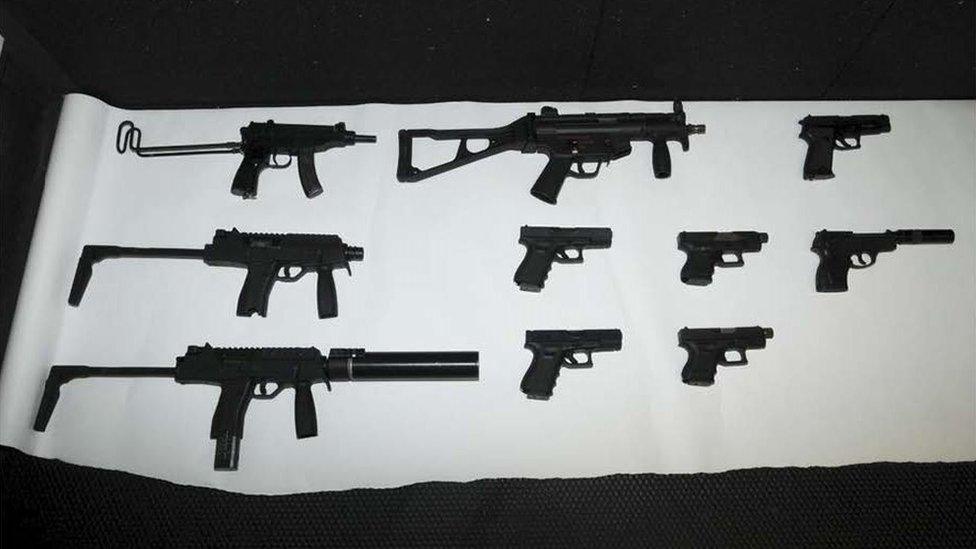
Firearms traded by the organised gang were also used to enforce the gang's lucrative drugs operations
Jurors watched CCTV of Hughes moments after the shooting walking away from the scene texting on a mobile phone.
Mr Ewing also asked the informer if Hughes understood something was to happen to Kok that night.
He replied: "I remember a comment being made about putting him [Kok] on a plate for the Roccies."
The witness claimed he had a meeting with his boss a month after the murder.
He said: "I was told it was an arrangement because the lad had access to Martin with a group called the Roccies, a Moroccan crime group, who are all over but more prominent in Amsterdam."
Hughes' boss then organised for him to be picked up as he hid in bushes while paramedics arrived at the scene.
Jurors heard Hughes was later put under surveillance by police and watched as he visited industrial units in Cambuslang and East Kilbride, South Lanarkshire as well as Chapelhall, North Lanarkshire.
Mr Ewing told the jury in his closing speech that £700,000 was recovered from a machine inside one of the lock up garages.
He added the lock-up in Chapelhall contained £40,000 of anti-surveillance equipment which is normally only found in the hands of government organisations.
Police Scotland welcomed the verdict and thanked law enforcement colleagues in the Netherlands and Italy for helping to bring the killer to justice.
Det Chief Supt Stuart Houston, head of the organised crime unit, said: "It has been well-documented that Hughes is a dangerous individual with a long association with organised crime in Scotland and beyond.
"He has wreaked havoc in our communities by trading illegal drugs to our communities and being involved in the importation of firearms which undoubtedly would have been used to harm or kill others.
"His conviction today is testament to Police Scotland's commitment to relentlessly pursuing criminals who think they are untouchable or above the law."
Related topics
- Published22 February 2022
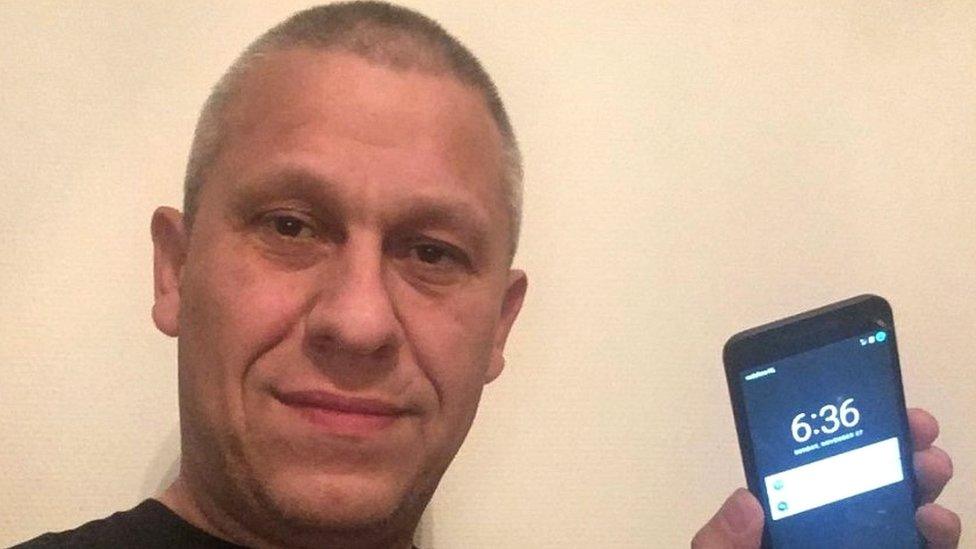
- Published21 February 2022
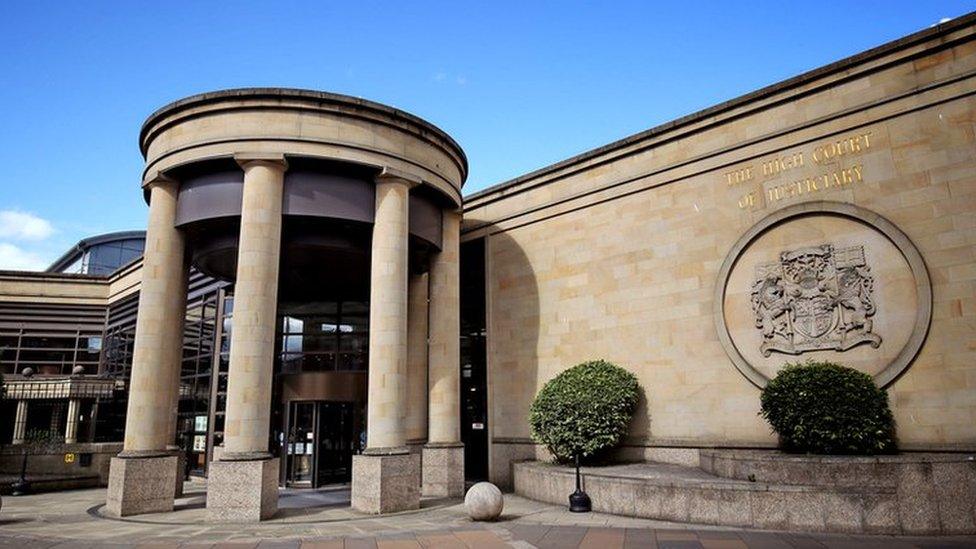
- Published2 August 2019
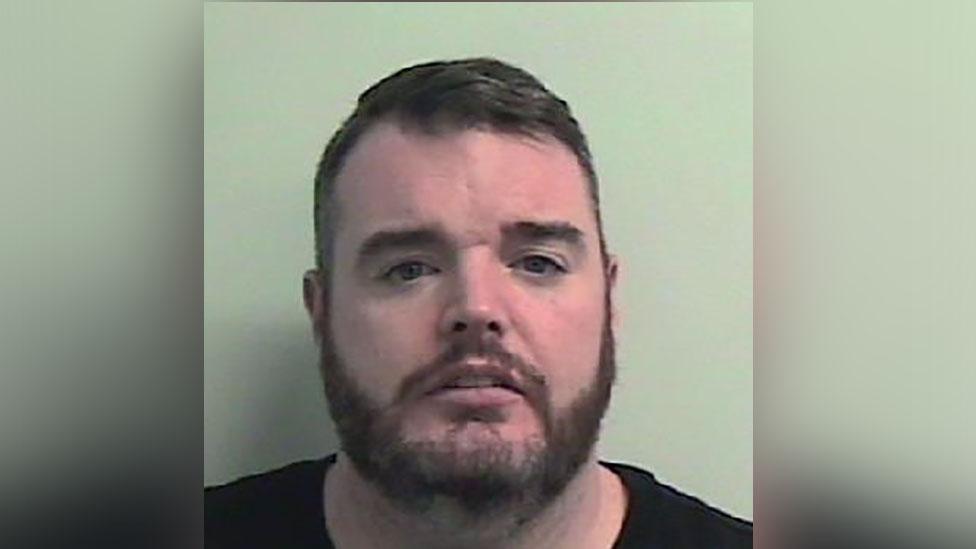
- Published22 January 2018
